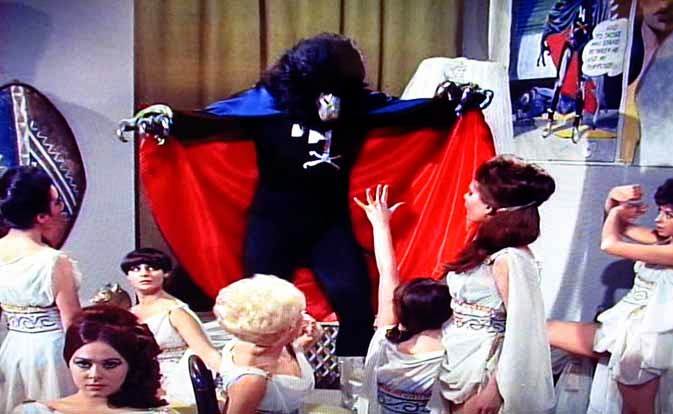David Jason's first big TV comedy came in 1967 with "Do Not Adjust Your Set." In addition to costar Denise Coffey, he played alongside Eric Idle, Michael Palin, and Terry Jones. Whereas the latter three attended prestigious Cambridge and Oxford, Jason hadn't possessed the right background or grades to attend any sort of university. The three Pre-Pythons were younger than him, and boasted far less acting experience. Nevertheless, they exuded a confidence in their abilities that Jason greatly envied.
Another factor which separated him was their friendship. The three already knew each other well, having shared so many experiences, and previously collaborated together. As a result, Jason found them "posh" and "a bit cliquey." I've enjoyed Michael Palin's diaries from the 1970s and '80s, so I was glad to learn that he "seemed the nicest," and that Jason "felt that there was less of a boundary with him." Nonetheless, the show was divided into halves, with Jason and Coffey filming their silent comedy routines, and occasionally performing on studio-bound skits written by the other three.
While Jason and Coffey contributed a few skits, and improvised their "Captain Fantastic" routines, Eric Idle, Michael Palin, and Terry Jones wrote the bulk of each episode. During the first season, David Jason recalls that everyone contributed enthusiastically. But as would reoccur on "Monty Python" at the BBC, Idle, Palin, and Jones grew increasingly frustrated during the second season. They saw their imaginations being stifled by the limitations of a children's show. Eventually, the three petitioned the Head of Comedy at Rediffusion to schedule the show later in the evening. He refused, on the grounds that "Do Not Adjust Your Set" was the most successful show the company had ever produced. Feeling that they needed to explore their creativity in different ways, the three left Rediffusion, which effectively ended the show.
Although he didn't know it at the time, David Jason was one of the budding young stars of English comedy. "Do Not Adjust Your Set" would serve as a stepping stone for his career, and he would go on to perform (and star in) a great number of TV shows, including one of my personal favorites, "Open All Hours." He may never have been a writer, but through hard work and persistence, he later became someone whom TV producers sought out and asked, "What type of program would you like us to build around you?" He became so highly regarded in Britain that in 2005 he was knighted by the Queen.
Still, when he was climbing the ladder of British TV, and he saw Eric Idle, Michael Palin, and Terry Jones shoot to worldwide fame with "Monty Python," he felt tremendously jealous. Well, be honest: wouldn't you? But then, none of us know all that the future holds in store for us.
"All hail Sir David Jason, knight of the British TV realm!"
Dragon Dave
Related Internet Links















